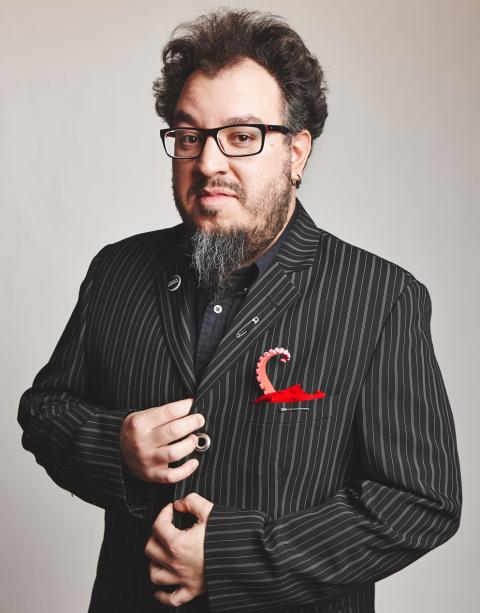Enrique Gonzalez Müller
For media inquiries, please contact Media Relations
Having graduated from Berklee College of Music in 1999, Enrique Gonzalez Müller embarked on a career as a music producer and engineer at the renowned Plant Studios. His talent led him to collaborate with influential artists such as Joan Baez, the Dave Matthews Band, members of Metallica, Joe Satriani, MC Hammer, DJ Quik, Too $hort, Stewart Copeland, and Les Claypool, to name a few. In his native Venezuela, Gonzalez Müller has produced numerous chart-topping albums for acclaimed bands including Caramelos de Cianuro, Desorden Público, and Viniloversus. His partnership with Los Amigos Invisibles resulted in the band's first Latin Grammy Award, for their album Commercial in 2009, followed by a Grammy nomination in 2018 and a second Latin Grammy win in 2020. Internationally, he made significant contributions in Switzerland, composing for the contemporary dance company Prototype Status and in Italy, by producing, recording, arranging, and mixing albums for renowned artists such as L’Aura and Elisa. His collaboration with Elisa, Tina Turner, and UNICEF on the hit duet "Teach Me Again," reached the number one position on the charts. In the United States, Gonzalez Müller continued collaborating with iconic names including Nine Inch Nails, Victor Wooten, Kronos Quartet, Jason Newsted (ex-Metallica) and Wynton Marsalis.
In 2010, Gonzalez Müller shifted his focus to education. He began as a volunteer faculty member for the Prison University Project at San Quentin State Prison in California. In 2012, he took on a full-time position as a faculty member in the Music Production and Engineering Department at Berklee College of Music. Recognized for his innovative approach to education, Gonzalez Müller received Berklee's Distinguished Faculty Award in 2015, and in 2018 he became the program director of Berklee Online's music production graduate program. In 2021, he founded the Pedagogy Arts Collective at Berklee, an initiative that fosters holistic excellence in the science and art of education across diverse disciplines, showcasing his commitment to elevating educational standards on a global scale.
- Latin Grammy–winning producer for categories Mejor Canción Alternativa (2020) and Best Rock/Alternative (2009)
- Grammy-nominated producer for El Paradise by Los Amigos Invisibles for the category Latin Urban, Pop Rock (2018)
- Production, engineering, and arranging credits with artists including the Kronos Quartet, Dave Matthews Band, Too $hort, Nine Inch Nails, members of Metallica, Joan Baez, Zucchero, Los Amigos Invisibles, and Tina Turner, as well as many independent artists in Italy, Venezuela, and the U.S.
- Ex-staff engineer for the Plant Recording Studios (Sausalito, California) and Tiny Telephone Studios (San Francisco, California)
- Member of the education committee of the San Francisco chapter of the Grammys
- Volunteer faculty for the Prison University Project at San Quentin State Prison in California
- Program director for Berklee Online's Master of Music in music production program
- Latin Grammy Award in the best Mejor Canción Alternativa category for "Tócamela" by Los Amigos Invisibles’ (2020)
- Latin Grammy Award in the Best Rock/Alternative category for producing Commercial by Los Amigos Invisibles (2009)
- Recipient of Berklee College of Music's Distinguished Faculty Award (2015)
- UPCEA Innovative and Creative Programming Award for Producción Musical y su Efecto en la Composición (2016)
-
School NameHarvard UniversityState or ProvinceMassachusettsDegreeProfessional Studies Certification (P.S.C.)Date Degree Received
-
School NameBerklee College of MusicState or ProvinceMassachusettsDegreeBachelor of Music (B.M.)Field of StudyMusic Production and EngineeringDate Degree Received

